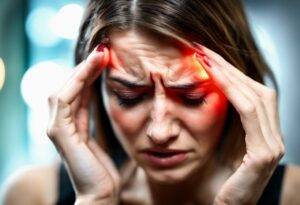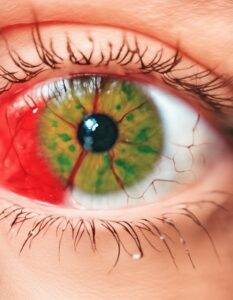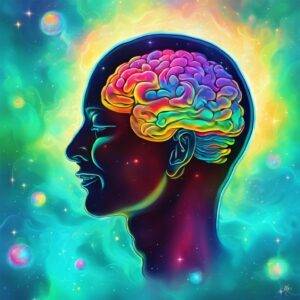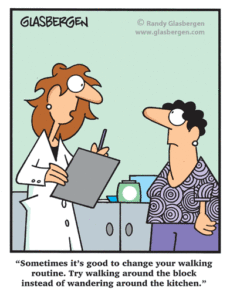Welcome to our comprehensive guide on Alzheimer’s disease, where we provide expert answers to 30 of the most pressing questions surrounding this debilitating neurological condition. Alzheimer’s affects millions of individuals and their families worldwide, causing progressive cognitive decline and impacting daily functioning. Within this post, you will find valuable insights and medical advice from leading experts in the field, helping you better understand Alzheimer’s and finding solace in informed knowledge. Read on to gain clarity and ease your concerns about this challenging disease.
Inside Alzheimer’s Disease: Expert Perspectives and Answers to 30 FAQs
1. What are the early signs and symptoms of Alzheimer’s disease that I should look out for in my loved one?
One of the early signs and symptoms of Alzheimer’s disease that you should look out for in your loved one is memory loss. This can manifest as forgetting recently learned information, asking for the same information repeatedly, or relying on memory aids. Another common symptom is difficulty in planning and problem-solving, such as struggling to follow recipes or balance a checkbook. Language problems can also arise, including trouble finding the right words or joining conversations. Additionally, individuals with Alzheimer’s disease may experience confusion about time or place, exhibit poor judgment, withdraw from social activities, or undergo changes in mood and personality.
2. How is Alzheimer’s disease diagnosed, and what tests are typically involved?
The diagnosis of Alzheimer’s disease typically involves a comprehensive evaluation conducted by a healthcare professional, such as a neurologist or geriatrician. The assessment usually includes a detailed medical history, physical and neurological examinations, cognitive tests to assess memory, thinking, and problem-solving abilities, and laboratory tests to rule out other possible causes for the symptoms. Brain imaging, such as magnetic resonance imaging (MRI) or positron emission tomography (PET), may also be utilized to help identify any observable abnormalities associated with Alzheimer’s disease. In some cases, a cerebrospinal fluid analysis or genetic testing may be recommended for further diagnostic clarification.
Just a little heads up: some of the links on this site may be affiliate links, which means if you make a purchase through them, we might get a little kickback. But don’t worry, it won’t cost you a cent extra! Think of it as the universe secretly thanking us for helping you find a great deal. Your support keeps the good vibes flowing.
3. Are there any known risk factors or genetic predispositions for developing Alzheimer’s disease?
While the exact cause of Alzheimer’s disease remains unknown, certain risk factors and genetic predispositions have been identified. Advancing age is the most significant known risk factor, with the likelihood of developing Alzheimer’s increasing significantly after the age of 65. Family history and genetics also play a role, as individuals who have a close relative with Alzheimer’s disease are at a slightly higher risk. In rare cases, specific gene mutations, such as those in the amyloid precursor protein (APP), presenilin-1 (PSEN1), and presenilin-2 (PSEN2) genes, can greatly increase the chances of developing early-onset familial Alzheimer’s disease.
4. Is there a cure for Alzheimer’s disease? If not, what are the available treatment options?
Currently, there is no cure for Alzheimer’s disease. However, there are available treatment options aimed at managing the symptoms, slowing down the progression of the disease, and improving the individual’s quality of life. These treatments often involve the use of medications, including cholinesterase inhibitors (such as donepezil, rivastigmine, and galantamine) or memantine (an NMDA receptor antagonist). These drugs can help regulate certain neurotransmitters in the brain, reducing symptoms such as memory loss, confusion, and agitation. In addition to medication, other interventions, such as occupational therapy, cognitive stimulation, and support groups, may also be beneficial in managing the disease.
5. What lifestyle changes can be made to slow down the progression of Alzheimer’s disease?
Certain lifestyle changes can potentially slow down the progression of Alzheimer’s disease. Regular physical exercise, both aerobic and strength-building, has been shown to have a positive impact on cognitive function. Engaging in mentally stimulating activities, such as reading, puzzles, and learning new skills, may also be beneficial. A healthy and balanced diet, including foods rich in antioxidants and omega-3 fatty acids, is often recommended. Maintaining a socially active and emotionally supportive environment can also contribute to the overall well-being of individuals with Alzheimer’s disease.
6. How can I effectively communicate with and support my loved one as their cognitive abilities decline?
Communicating effectively with your loved one as their cognitive abilities decline can be challenging but crucial for their well-being. It is essential to maintain patience, use simple and clear language, and provide visual cues when necessary. Asking one question at a time and allowing ample time for a response can help facilitate communication. Active listening, non-verbal cues, and positive reinforcement can also aid in establishing meaningful interactions. As the disease progresses, it becomes important to ensure their safety and provide a supportive environment that addresses their specific needs with dignity and respect. Seeking guidance from healthcare professionals or support groups can offer additional strategies and coping mechanisms.
7. Are there any experimental treatments or clinical trials that my loved one could participate in?
There are ongoing clinical trials and experimental treatments being conducted to explore potential advancements in Alzheimer’s disease management. Some clinical trials focus on testing new medications, while others investigate interventions aiming to delay or prevent the onset of the disease. Participating in clinical trials can offer individuals with Alzheimer’s disease access to cutting-edge treatments and contribute to scientific knowledge in the field. However, it is essential to thoroughly evaluate the risks, potential benefits, and eligibility criteria before considering participation in any trial. Consultation with healthcare professionals or organizations specialized in Alzheimer’s research can provide valuable information.
8. What are the potential side effects and risks associated with Alzheimer’s medications?
Alzheimer’s medications, such as cholinesterase inhibitors or memantine, may have potential side effects. These can include gastrointestinal symptoms like nausea, vomiting, or diarrhea, as well as dizziness, headache, and fatigue. It is important to consult with a healthcare professional to monitor and manage any side effects that may occur. While risks vary depending on the specific medication, overall, the benefits of treatment often outweigh the potential risks in managing Alzheimer’s disease symptoms.
9. How long can someone live with Alzheimer’s disease, and what factors influence life expectancy?
Alzheimer’s disease is a progressive condition, and life expectancy can vary depending on various factors. On average, individuals may live for approximately8 to10 years following diagnosis, although this can vary significantly. Factors influencing life expectancy include age at diagnosis, overall health status, and the presence of other medical conditions. A supportive and stimulating environment, access to appropriate medical care, and a strong support system can positively impact quality of life and potentially extend the lifespan of someone with Alzheimer’s disease.
10. Is it possible for someone to have Alzheimer’s disease without showing memory loss symptoms?
It is possible for someone to have Alzheimer’s disease without showing memory loss symptoms, especially in the early stages of the disease. Other cognitive and behavioral changes may be more noticeable, such as difficulties with problem-solving, language, or orientation. Some individuals may initially experience changes in personality, mood, or social interactions. It is crucial to consult with a medical professional if any concerning symptoms arise to obtain an accurate diagnosis and facilitate appropriate care and support.
11. Can Alzheimer’s disease be misdiagnosed, and what conditions could be mistaken for it?
Yes, Alzheimer’s disease can be misdiagnosed, as there are several conditions that could be mistaken for it. These include other types of dementia such as frontotemporal dementia and Lewy body dementia, as well as conditions like depression, vitamin B12 deficiency, and thyroid problems. It is crucial to consult with a qualified medical professional who specializes in Alzheimer’s disease for an accurate diagnosis.
12. What role do diet and nutrition play in managing Alzheimer’s disease?
Diet and nutrition play a significant role in managing Alzheimer’s disease. A healthy diet can help support brain health and slow down the progression of the disease. It is recommended to follow a diet rich in fruits, vegetables, whole grains, lean proteins, and healthy fats. Avoiding processed foods, trans fats, and excessive sugar intake is also essential. Additionally, some studies suggest that consuming foods high in omega-3 fatty acids, such as fatty fish, and antioxidant-rich foods, like berries, may be beneficial for individuals with Alzheimer’s disease.
13. How can I help manage the behavioral and psychological symptoms associated with Alzheimer’s disease?
Managing the behavioral and psychological symptoms associated with Alzheimer’s disease can be challenging but there are strategies to help. Creating a calm and structured environment, maintaining a regular routine, and providing familiar and meaningful activities can be beneficial. It is also essential to ensure safety by removing any potential hazards. In some cases, medications can be prescribed to manage specific symptoms, but it is important to consult with a healthcare professional to determine the most appropriate approach for your loved one.
14. Are there any alternative or complementary therapies that may benefit Alzheimer’s patients?
While there is no cure for Alzheimer’s disease, there are alternative or complementary therapies that may provide some benefits. For example, music therapy, art therapy, and pet therapy have shown promising results in improving mood and reducing agitation in individuals with Alzheimer’s disease. Additionally, mind-body practices like yoga and meditation may help reduce stress and promote overall well-being. It is important to note that these therapies should be used in conjunction with traditional medical treatments and under the guidance of a healthcare professional.
15. Are there any known ways to prevent or delay the onset of Alzheimer’s disease?
Currently, there are no known ways to prevent or delay the onset of Alzheimer’s disease with absolute certainty. However, engaging in a healthy lifestyle may help reduce the risk. Regular physical exercise, maintaining a balanced diet, staying mentally and socially active, managing chronic conditions, and getting enough quality sleep have all been associated with a lower risk of developing Alzheimer’s disease. It is important to adopt these habits early in life and continue them throughout the aging process.
16. What support services are available for caregivers of Alzheimer’s patients?
There are several support services available for caregivers of Alzheimer’s patients. These can include support groups, counseling services, and respite care programs. Support groups provide a platform for caregivers to share experiences, gather information, and receive emotional support from others in similar situations. Counseling services, including individual or family counseling, can help caregivers cope with the challenges and stress associated with caregiving. Respite care programs offer temporary relief and assistance by providing trained caregivers to take over the caregiving responsibilities for a short period.
17. How can I plan for the future and address legal and financial matters for my loved one with Alzheimer’s?
Planning for the future and addressing legal and financial matters for a loved one with Alzheimer’s disease is crucial. It is recommended to consult with an experienced attorney specializing in elder law to help navigate the necessary legal documentation. This may include creating a durable power of attorney for healthcare and finances, establishing a living will, and considering guardianship options. It is also important to review and update insurance policies, such as long-term care insurance, and explore available financial assistance programs to ensure adequate support and care for the individual with Alzheimer’s disease.
18. Can Alzheimer’s disease be inherited, and what are the chances of passing it on to future generations?
While Alzheimer’s disease cannot be inherited directly, there is a genetic component to it. Certain genetic factors, such as the presence of specific gene mutations, can increase the risk of developing the disease. However, having these genetic factors does not guarantee the development of Alzheimer’s disease. The chances of passing on Alzheimer’s disease to future generations depend on the specific genetic factors involved. Genetic counseling can provide more personalized information and guidance regarding the inheritance risk.
19. What advancements have been made in Alzheimer’s research, and what breakthroughs can we expect in the near future?
Significant advancements have been made in Alzheimer’s research, and ongoing studies continue to provide new insights into the disease. Researchers are exploring various approaches, including targeting specific proteins in the brain, developing new drugs, and investigating the role of inflammation and the immune system. While there is no definitive cure yet, breakthroughs in early detection and personalized treatment approaches hold promise for the future. As research progresses, it is hoped that more effective interventions and potential preventive strategies will emerge.
Just a little heads up: some of the links on this site may be affiliate links, which means if you make a purchase through them, we might get a little kickback. But don’t worry, it won’t cost you a cent extra! Think of it as the universe secretly thanking us for helping you find a great deal. Your support keeps the good vibes flowing.
21. Are there any non-pharmacological interventions or therapies that can improve the quality of life for Alzheimer’s patients?
Non-pharmacological interventions or therapies can indeed improve the quality of life for Alzheimer’s patients. These interventions include cognitive stimulation activities, such as puzzles, games, and memory exercises, which can help maintain cognitive function and delay decline. Additionally, physical exercise has been shown to have positive effects on both cognitive function and mood. Social engagement and participation in activities that promote social interaction, such as support groups or community programs, can also enhance well-being. Finally, music therapy and art therapy have shown promising results in improving mood, reducing agitation, and increasing socialization in Alzheimer’s patients.
22. Can certain medications or substances worsen the symptoms of Alzheimer’s disease?
Yes, certain medications or substances can worsen the symptoms of Alzheimer’s disease. For example, anticholinergic drugs, which are commonly used for conditions like allergies, sleep disorders, and bladder problems, can worsen memory impairment and cognitive function in individuals with Alzheimer’s. It is important for caregivers and healthcare professionals to review the medications being taken by Alzheimer’s patients and assess their potential impact on the disease symptoms. Moreover, alcohol and recreational drugs should be avoided as they can have detrimental effects on cognitive function and overall health.
23. How does Alzheimer’s disease impact sleep patterns and what strategies can be employed to improve sleep quality?
Alzheimer’s disease commonly disrupts sleep patterns, leading to insomnia, nighttime wandering, and daytime sleepiness. The impact on sleep can in turn exacerbate the symptoms of Alzheimer’s. To improve sleep quality, it is important to establish a consistent sleep routine and create a relaxing environment. This can include a regular bedtime, avoiding stimulants like caffeine close to bedtime, ensuring a comfortable and quiet sleeping area, and providing nightlights or safety measures to prevent falls during nighttime wandering. If sleep problems persist, it may be helpful to consult a healthcare professional for additional guidance and possible interventions.
24. What resources are available for families dealing with the financial burden of Alzheimer’s disease care?
Families dealing with the financial burden of Alzheimer’s disease care have several resources available to them. One such resource is Medicaid, a joint federal and state program that provides healthcare coverage for low-income individuals, including long-term care services for seniors with Alzheimer’s disease. Additionally, there are non-profit organizations and support groups that offer financial assistance, counseling, and guidance on navigating the financial aspects of Alzheimer’s care. Local and state government agencies may also provide information and support regarding financial assistance programs or grants. Seeking the advice of financial planners or elder law attorneys who specialize in Alzheimer’s care can also be beneficial in planning for long-term care costs.
25. What can be done to ensure the safety of individuals with Alzheimer’s disease at home?
Ensuring the safety of individuals with Alzheimer’s disease at home is of utmost importance. Several measures can be taken to create a safe environment. This includes removing or securing potential hazards such as sharp objects, toxic substances, or firearms. Installing safety devices like handrails, grab bars, and non-slip mats can help prevent falls. Using locks or alarms on doors and windows can help prevent wandering and ensure the individual stays within safe boundaries. It is also important to regularly assess the home environment for any new safety concerns as the disease progresses and adapt accordingly. Consider consulting with healthcare professionals or occupational therapists who specialize in home safety for individuals with Alzheimer’s.
26. Are there any assistive technologies or devices that can help individuals with Alzheimer’s disease in their daily lives?
There are various assistive technologies and devices that can significantly help individuals with Alzheimer’s disease in their daily lives. These include:
– Medication reminders: Devices that can dispense medications at specific times or send reminders to take medications.
– GPS trackers: These can be worn by individuals with Alzheimer’s to help locate them if they wander away from home.
– Safety monitors: These devices can detect falls, changes in movement patterns, or other emergencies and alert caregivers or healthcare professionals.
– Automated lights and appliances: These can be programmed to turn on or off at specific times, helping with daily routines and reducing the risk of fire or accidents.
– Memory aids: Digital calendars, reminder apps, or voice-activated assistants can assist with organizing schedules, remembering appointments, and daily tasks.
– Communication aids: Speech-to-text or text-to-speech devices can help facilitate communication for individuals with language difficulties.
– Wander management systems: These can monitor movements and alert caregivers if a person with Alzheimer’s tries to leave a designated area.
It is important to assess the specific needs of the individual with Alzheimer’s and consult with healthcare professionals or specialists in assistive technology to determine the most suitable devices for their situation.
27. Can Alzheimer’s disease be prevented through activities that enhance cognitive function, such as puzzles or brain exercises?
While no activities are guaranteed to prevent Alzheimer’s disease, engaging in activities that enhance cognitive function may have some potential benefits. Puzzles, brain exercises, and activities that require problem-solving and memory recall can help stimulate the brain and maintain cognitive abilities. However, it is important to note that these activities may not directly prevent or cure Alzheimer’s disease, but rather promote brain health and potentially delay cognitive decline. Additionally, maintaining an overall healthy lifestyle, including regular exercise, a balanced diet, and social engagement, can contribute to overall brain health and potentially reduce the risk of developing Alzheimer’s disease.
28. What are the warning signs of late-stage Alzheimer’s disease, and how can end-of-life care be provided?
The warning signs of late-stage Alzheimer’s disease include severe memory loss, difficulty communicating, inability to recognize familiar faces or places, increased confusion and disorientation, impaired mobility, and significant changes in mood and behavior. As the disease progresses, end-of-life care becomes essential to ensure comfort and dignity for the individual. End-of-life care for Alzheimer’s patients may involve a focus on symptom management, such as pain relief, managing discomfort, and addressing emotional and spiritual needs. Hospice care, which provides comprehensive support and comfort to individuals nearing the end of life, can be a valuable resource for both the patient and their family. Consulting with healthcare professionals and hospice providers can help guide end-of-life care decisions and provide support during this challenging time.
29. Are there any alternative therapies, such as music therapy or aromatherapy, that have shown promising results in Alzheimer’s patients?
Alternative therapies, such as music therapy or aromatherapy, have shown promising results in improving certain symptoms and enhancing the well-being of Alzheimer’s patients. Music therapy involves using music to stimulate and engage individuals with Alzheimer’s, which can help reduce agitation, improve mood, and enhance social interaction. Aromatherapy, on the other hand, utilizes essential oils to create a calming and soothing environment, potentially reducing anxiety and promoting relaxation. While these alternative therapies may not have a direct impact on the underlying progression of Alzheimer’s disease, they can offer additional support and improve the quality of life for patients. It is crucial to consult with healthcare professionals familiar with the use of these therapies to ensure they are safe and appropriate for the individual with Alzheimer’s.
30. How can I encourage my loved one to engage in social activities and maintain a sense of connection despite their cognitive decline?
Encouraging social activities and maintaining a sense of connection for individuals with Alzheimer’s disease can be challenging but important. Some strategies to consider include:
– Planning activities that align with the person’s current abilities and interests. For example, engaging in simple crafts, listening to music, or looking at photo albums together.
– Participating in group programs or support groups specifically designed for individuals with Alzheimer’s. These can provide opportunities for socialization and connection with others who are facing similar challenges.
– Incorporating familiar faces and routines into the person’s life. Regular visits from loved ones, engaging in family traditions, or participating in familiar activities can foster a sense of connection and continuity.
– Utilizing technology to facilitate social connections. Video calls or sending voice messages can help individuals stay connected with distant family and friends.
– Exploring community resources and local organizations that provide social activities for individuals with Alzheimer’s. Adult day centers, memory cafes, or senior centers may offer programs specifically tailored to their needs.
It is important to be patient, understanding, and adaptable in finding activities and approaches that work best for the individual. Consulting with healthcare professionals or Alzheimer’s support organizations can provide additional guidance and resources.
Alzheimer’s, Alzheimer’s disease, dementia, neurodegenerative, memory loss, cognitive decline, brain health, aging, mental health, Alzheimer’s symptoms, early detection, Alzheimer’s prevention, Alzheimer’s risk factors, Alzheimer’s treatment, Alzheimer’s research, Alzheimer’s causes, Alzheimer’s caregivers, Alzheimer’s impact, Alzheimer’s support, Alzheimer’s awareness, Alzheimer’s education, Alzheimer’s facts, Alzheimer’s diagnosis, Alzheimer’s stages, Alzheimer’s prognosis, Alzheimer’s prevention tips, Alzheimer’s care, Alzheimer’s resources, Alzheimer’s community, Alzheimer’s management
While I do cite reputable sources, I am not a medical professional. Please use professional medical advice when making any health-related decisions.
Conclusion:
We sincerely hope that this extensive Q&A session with expert medical professionals has shed light on your concerns regarding Alzheimer’s disease. By providing accurate information and personal insights, we aim to empower you with the knowledge needed to navigate the challenges associated with this condition. Remember, staying informed and seeking professional guidance are crucial steps towards managing Alzheimer’s effectively. By sharing this resource with others, you can contribute to spreading awareness and support for those impacted by Alzheimer’s. Together, let us continue to strive for a future where improved treatments, early detection, and increased research efforts pave the way for better outcomes in Alzheimer’s care.
1. Website: Alzheimer’s Association
URL: https://www.alz.org/alzheimers-dementia/10_signs
2. Website: National Institute on Aging
URL: https://www.nia.nih.gov/alzheimers/topics/diagnosis
3. Website: Alzheimer’s Association
URL: https://www.alz.org/alzheimers-dementia/what-is-alzheimers/causes-and-risk-factors
4. Website: Mayo Clinic
URL: https://www.mayoclinic.org/diseases-conditions/alzheimers-disease/diagnosis-treatment/drc-20350453
5. Website: National Institute on Aging
URL: https://www.nia.nih.gov/alzheimers/topics/prevention
6. Website: Alzheimer’s Society
URL: https://www.alzheimers.org.uk/about-dementia/symptoms-and-diagnosis/how-support-person-dementia
7. Website: ClinicalTrials.gov
URL: https://www.clinicaltrials.gov/
8. Website: Mayo Clinic
URL: https://www.mayoclinic.org/diseases-conditions/alzheimers-disease/diagnosis-treatment/drc-20350453
9. Website: Alzheimer’s Association
URL: https://www.alz.org/help-support/i-have-alz/if-you-have-alzheimers
10. Website: Medical News Today
URL: https://www.medicalnewstoday.com/articles/can-you-have-alzheimers-without-memory-loss
11. Website: Mayo Clinic
URL: https://www.mayoclinic.org/diseases-conditions/alzheimers-disease/diagnosis-treatment/drc-20350453
12. Website: Alzheimer’s Society
URL: https://www.alzheimers.org.uk/about-dementia/treatments/non-drug
13. Website: Alzheimer’s Association
URL: https://www.alz.org/alzheimers-dementia/what-is-dementia/symptoms
14. Website: Alzheimer’s Society
URL: https://www.alzheimers.org.uk/about-dementia/treatments/complementary-therapies
15. Website: National Institute on Aging
URL: https://www.nia.nih.gov/health/can-alzheimers-disease-be-prevented
16. Website: Alzheimer’s Association
URL: https://www.alz.org/help-support/resources/caregiving
17. Website: Alzheimer’s Association
URL: https://www.alz.org/help-support/legal-help/advance-directives
18. Website: National Human Genome Research Institute
URL: https://www.genome.gov/Genetic-Disorders/Alzheimers-Disease
19. Website: Alzheimer’s Association
URL: https://www.alz.org/alzheimers-dementia/research_progress
20. Website: Alzheimer’s Society
URL: https://www.alzheimers.org.uk/about-dementia/symptoms-and-diagnosis/symptoms/motor-neurone-disease
21. Website: Alzheimer’s Society
URL: https://www.alzheimers.org.uk/about-dementia/treatments/non-drug
22. Website: Mayo Clinic
URL: https://www.mayoclinic.org/diseases-conditions/alzheimers-disease/diagnosis-treatment/drc-20350453
23. Website: National Sleep Foundation
URL: https://www.sleepfoundation.org/articles/how-alzheimers-disease-affects-sleep
24. Website: Alzheimer’s Association
URL: https://www.alz.org/help-support/caregiving/financial-legal-planning
25. Website: Alzheimer’s Association
URL: https://www.alz.org/help-support/caregiving/home-safety
26. Website: Alzheimer’s Society
URL: https://www.alzheimers.org.uk/about-dementia/symptoms-and-diagnosis/helpful-products
27. Website: Alzheimer’s Association
URL: https://www.alz.org/help-support/brain_health/ten_ways_to_love_your_brain
28. Website: Alzheimer’s Association
URL: https://www.alz.org/alzheimers-dementia/stages
29. Website: Mayo Clinic
URL: https://www.mayoclinic.org/diseases-conditions/alzheimers-disease/diagnosis-treatment/drc-20350453
30. Website: Alzheimer’s Association
URL: https://www.alz.org/alzheimers-dementia/stages/late-end-stage

Just a little heads up: some of the links on this site may be affiliate links, which means if you make a purchase through them, we might get a little kickback. But don’t worry, it won’t cost you a cent extra! Think of it as the universe secretly thanking us for helping you find a great deal. Your support keeps the good vibes flowing.


































































































